2 min read
Gospel-Centered from the Start
“Let us hold unswervingly to the hope we profess, for He Who promised is faithful…Jesus Christ is the same yesterday, today, and forever.” (Hebrews...
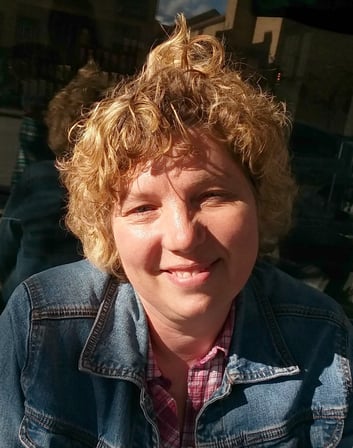 Heidi Hash had the chance to give a priceless gift. It wouldn’t cost her money, but it would require a huge investment of time, energy – and faith.
Heidi Hash had the chance to give a priceless gift. It wouldn’t cost her money, but it would require a huge investment of time, energy – and faith.
The youth pastor at her church, South Hill Bible Church, was invited to bring a group of kids to UGM Camp for a week, and he was wondering where they should look to find the children who needed it most.
“Grant!” she said immediately. She had two children at Grant Elementary School and knew it held hundreds for whom this would be the only way they’d ever get to go to camp. The school’s rate of children qualifying for lunch assistance from the government is 83%, reflecting the relative poverty in the neighborhood. These parents can’t afford to pay for “luxuries” like summer camp.
The Grant principal welcomed the idea. She asked what kinds of children they wanted to recruit.
“I told her we want the kids that are always in the office,” Heidi said. “We want the kids that are in trouble.”
Each of the past five summers, Heidi and the South Hill Bible team have brought 60 to 70 children from Grant for an unforgettable week at UGM Camp – and they’re coming again this year.
Here’s what I learned from Heidi about how camp goes deeper than just five days of fun.
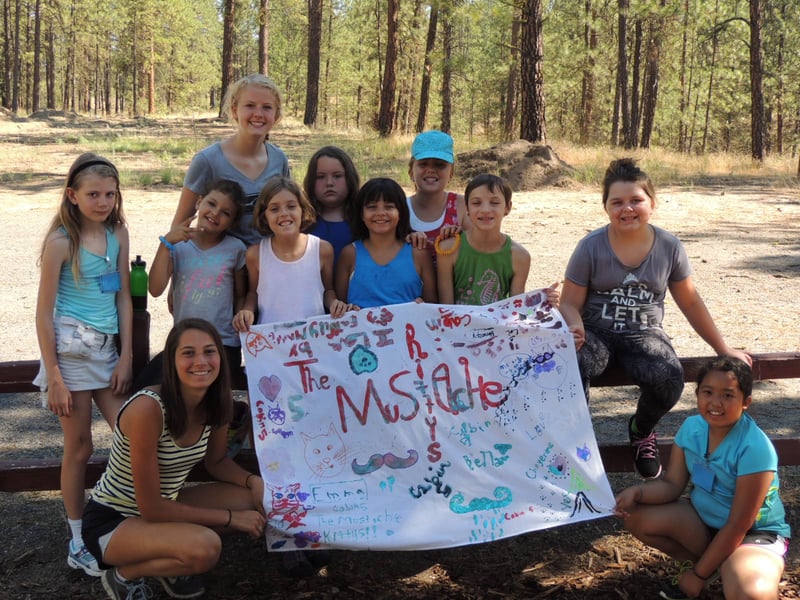
Anybody who has been to any summer camp will confirm that yes, it is a blast – but it’s also uncomfortable, especially at first. For the kids who come from Grant Elementary, Heidi says there are a few reasons the first day is hard:
These situations are tough for kids who are only 8 to 12 years old. They can feel homesick, lonely, scared, defensive.
But every year at camp, Heidi watches the children test the truth of James 1:2-4 in a safe setting: “Dear brothers and sisters, when troubles of any kind come your way, consider it an opportunity for great joy. For you know that when your faith is tested, your endurance has a chance to grow. So let it grow, for when your endurance is fully developed, you will be perfect and complete, needing nothing.”
Discomfort is an opportunity to grow. As the campers push through those little discomforts and engage with each other and the counselors, they build endurance – and joy – for the next test.
One boy constantly complained about camp, said he didn’t want to be there and picked fights with other campers. For three days, leaders wondered how to deal with him. For safety reasons, he had to be kept one-on-one with a counselor, apart from the other campers. On Wednesday evening, Heidi told him she’d call his mom and drive him home.
“When it got to that, he said, ‘I don’t want to go home… it’s not really that bad.’ … By Thursday morning, it was the best thing ever. He was happy to be there, he was working with others, he was getting along.”
Not many are extreme cases like that, but all the campers find they can learn from new challenges and push through uncomfortable times.
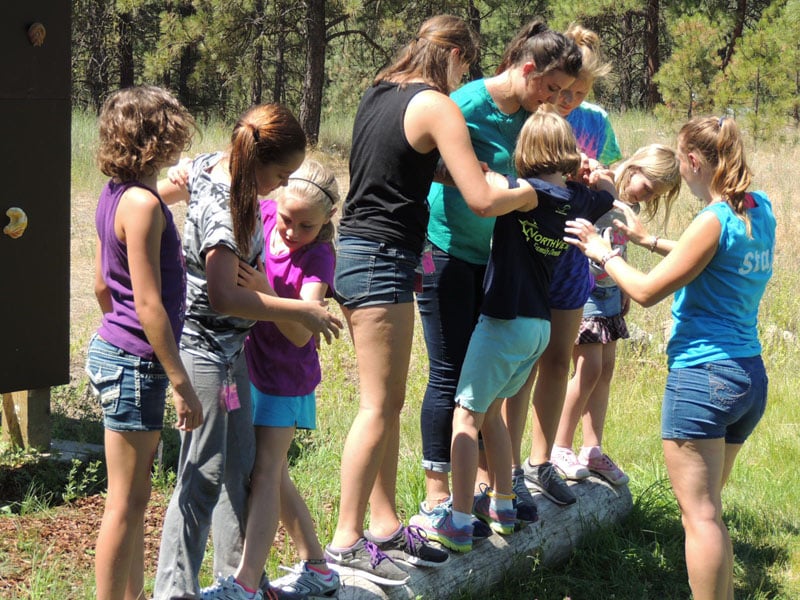
Heidi is now the school nurse for Grant. More than once, she’s been able to encourage the students at school with memories of camp: “Do you remember? That week was really hard and really uncomfortable the first couple days, and pushing through to the end and the success you had. … When things are hard, remember what you did at camp, and just push through to the end.”
The team-building exercises the campers do are very hard for them at first. But they can’t move on from the first, simple task until they come together to find a way for everyone to finish.
And that leads us to the next lesson.
When we feel threatened or have been hurt, human nature is to isolate from others and avoid the pitfalls of engaging with other people. Heidi says that’s the most common, natural attitude of the children at school.
“Most everybody is in it for themselves: ‘I’m surviving, I’m getting by, it’s all about me.’ ”
But that doesn’t last long at camp. Consider this challenge, where the boys (remember, some of them start out not exactly best buddies) had to get everyone moved from one platform to the other using the rope. 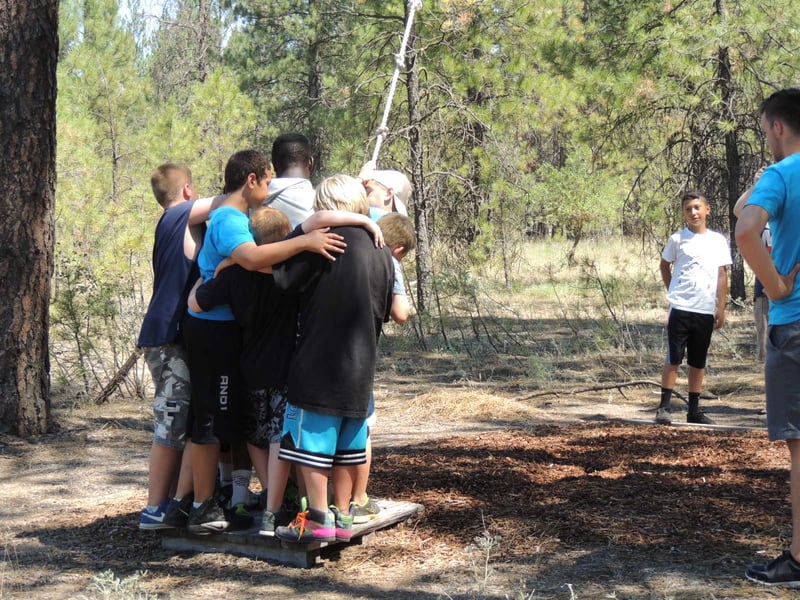
“For a lot of these kids, it’s so hard working in a group … seeing them all huddled around and really working hard. That was a challenge where they actually drew together,” Heidi says.
Later, when the boys were able to lift one of the heaviest campers up and over a wall, they were extremely proud of themselves: “We did it. We accomplished one of the biggest challenges on the campus!”
Heidi has noticed that when the campers come back to school in the fall, they have an increased sensitivity to the community. “Some of the kids that are maybe more quiet, maybe small stature, I notice there’s a ‘take care of them’ mentality.” For one boy at school who is an English Language Learner, “they just rally around him. They take care of him at school. I’ve seen that grow.”
That sense of community has built over time. Over the years, Heidi has also had former campers ask when they can come back to serve on the camp work crew. Some join the church youth group and return to camp in later years as counselors. Campers aren’t the only ones who grow and mature at camp – the 15- to 17-year-old counselors are stretched to their limits as well, working as a team as well as individually.
“They’re on for 24 hours … for five days in a row with no sleep. They’re exhausted. I mean, just to see them push through and persevere is amazing.”
Watching the kids play in the river’s mud beds at camp does Heidi’s heart good. They love every minute, getting as dirty as they can. One boy found a few tiny fish in a puddle and “saved” them in his pocket to pull out later.
“That was a mess,” Heidi says with a chuckle. But watching the kids’ joy and excitement in these new experiences is priceless.
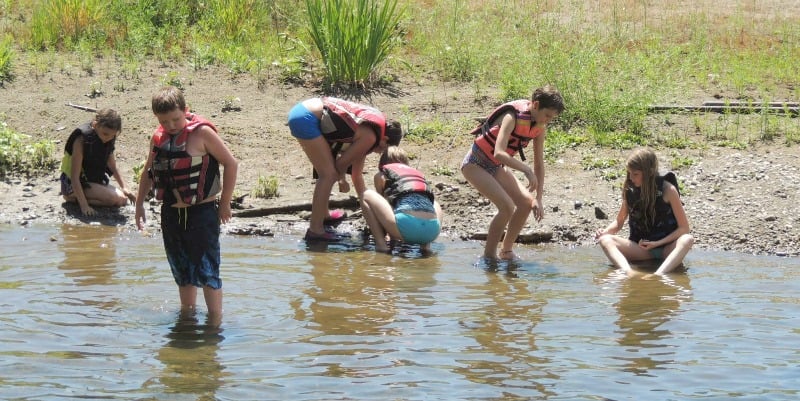 Many campers will fish in the river for hours on end. Why? “Never done it before,” Heidi says. The chance to swim in a natural body of water, to find critters in the mud, to canoe and kayak, are all absolutely fresh experiences, and the kids are enthralled.
Many campers will fish in the river for hours on end. Why? “Never done it before,” Heidi says. The chance to swim in a natural body of water, to find critters in the mud, to canoe and kayak, are all absolutely fresh experiences, and the kids are enthralled.
Another draw is the adults who help them fish – the campers can get hours of uninterrupted attention from people who are there just because they care. For many campers, receiving that investment of time from loving adults is in itself a rare experience.
And they’ll never forget it.
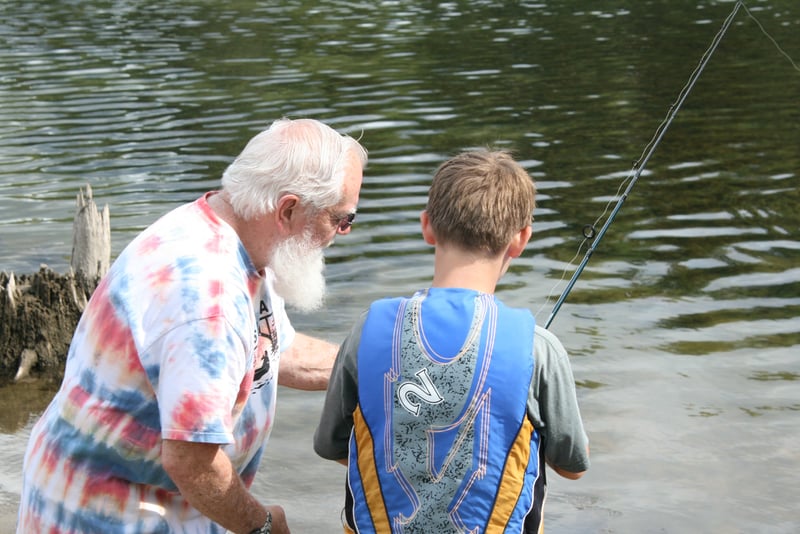
South Hill Bible Church has also made extra efforts to plug the kids in outside of camp, with monthly “Grant nights” at the church and winter camps during the school year. These help the families of the campers to feel more at home coming to the church and supporting their children’s involvement, “especially for nonbelieving families who maybe have baggage … not good experiences growing up in church.”
The sense of family brings the campers back for more. Even after the gap where they’re too old to be campers but too young to be on the camp work crew, they’ll come back eager to serve at camp as soon as they’re allowed. By then, they’ve heard the truth of the Gospel a few times.
“You never know where Jesus is going to lead these kids,” Heidi says. The seeds are planted at camp and could bear fruit “down the road, a year, two years, or in 10 or 15.”
One girl came to faith in Jesus at camp. Later, when she saw Heidi at school, she said, “I’m your sister! Remember, I’m your sister!”
“Absolutely right!” Heidi said. “We are sisters in Christ! If you have questions anytime, you just come to see me.”
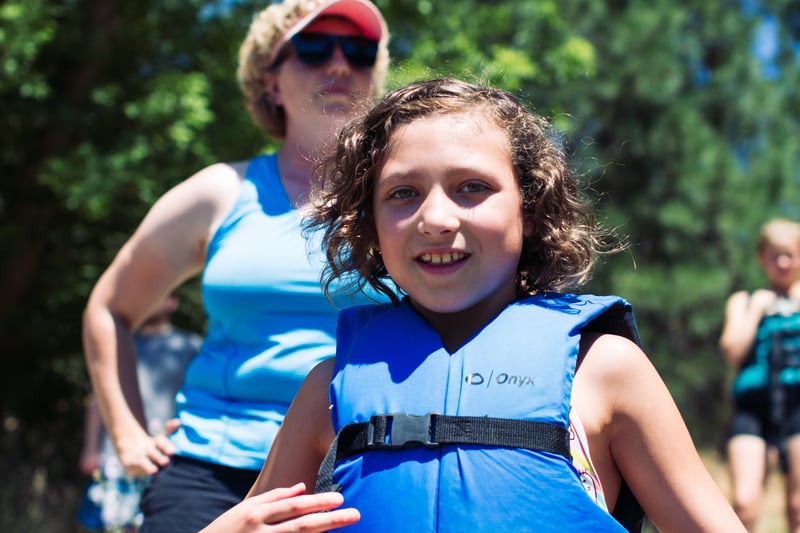
South Hill Bible Church, and eight other local churches, have a chance to make meaningful connections with at-risk children at UGM Camp this summer because of your support. It only costs $99 to sponsor a camper.

2 min read
“Let us hold unswervingly to the hope we profess, for He Who promised is faithful…Jesus Christ is the same yesterday, today, and forever.” (Hebrews...

9 min read
To celebrate 75 years of serving the Inland Northwest, we are spending the year remembering our history and the faithfulness that built us and...

2 min read
In 2026, Union Gospel Mission Inland Northwest is approaching our 75th Anniversary! This is a milestone that invites gratitude and reflection, and...
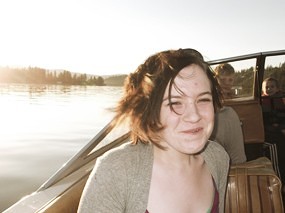
"I have loved you with an everlasting love; I have drawn you with loving-kindness." – Jeremiah 31:3
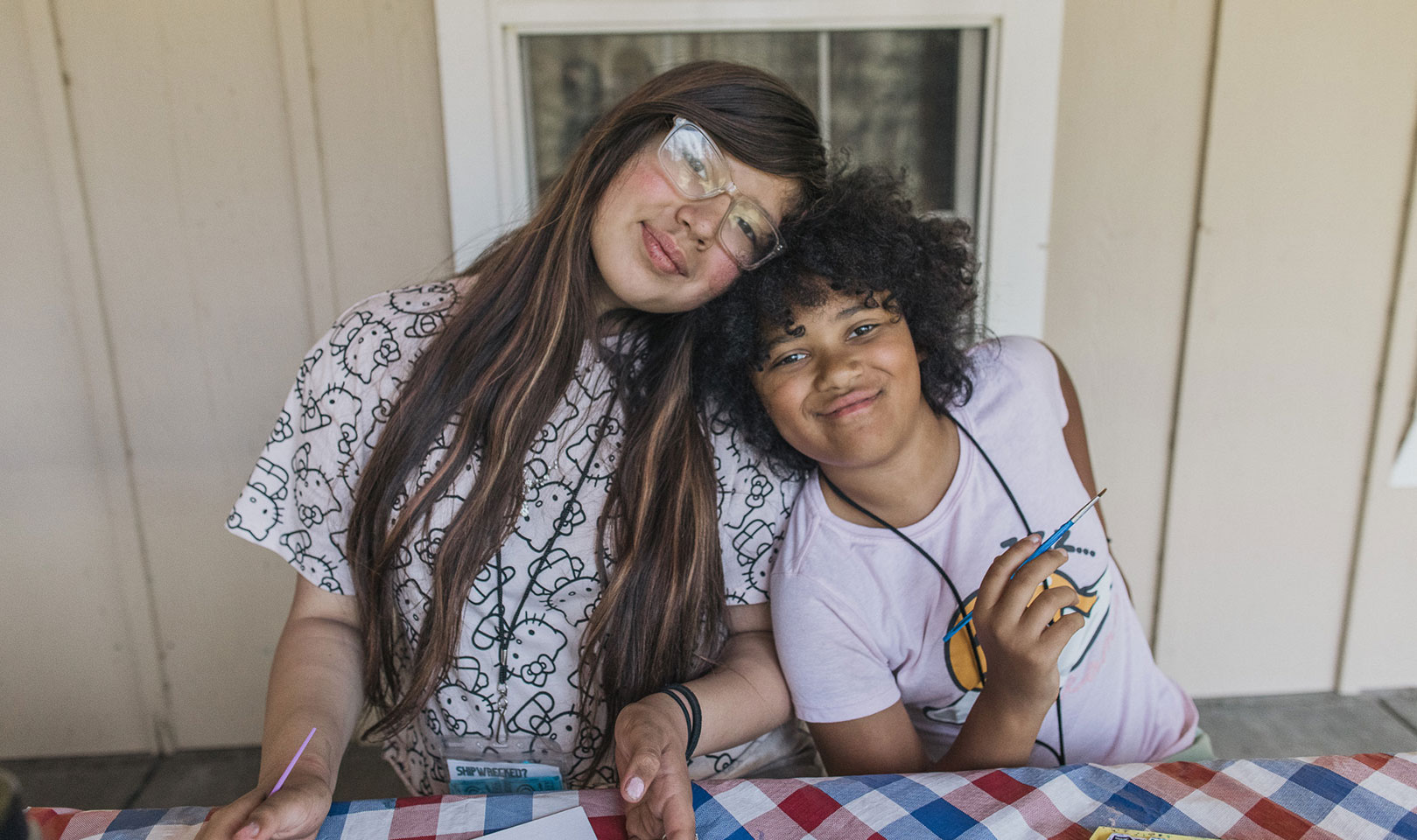
The 2023 UGM Camp season has just wrapped up, and we have loads of messages from this summer's campers to share with you. Each week, on the fourth...
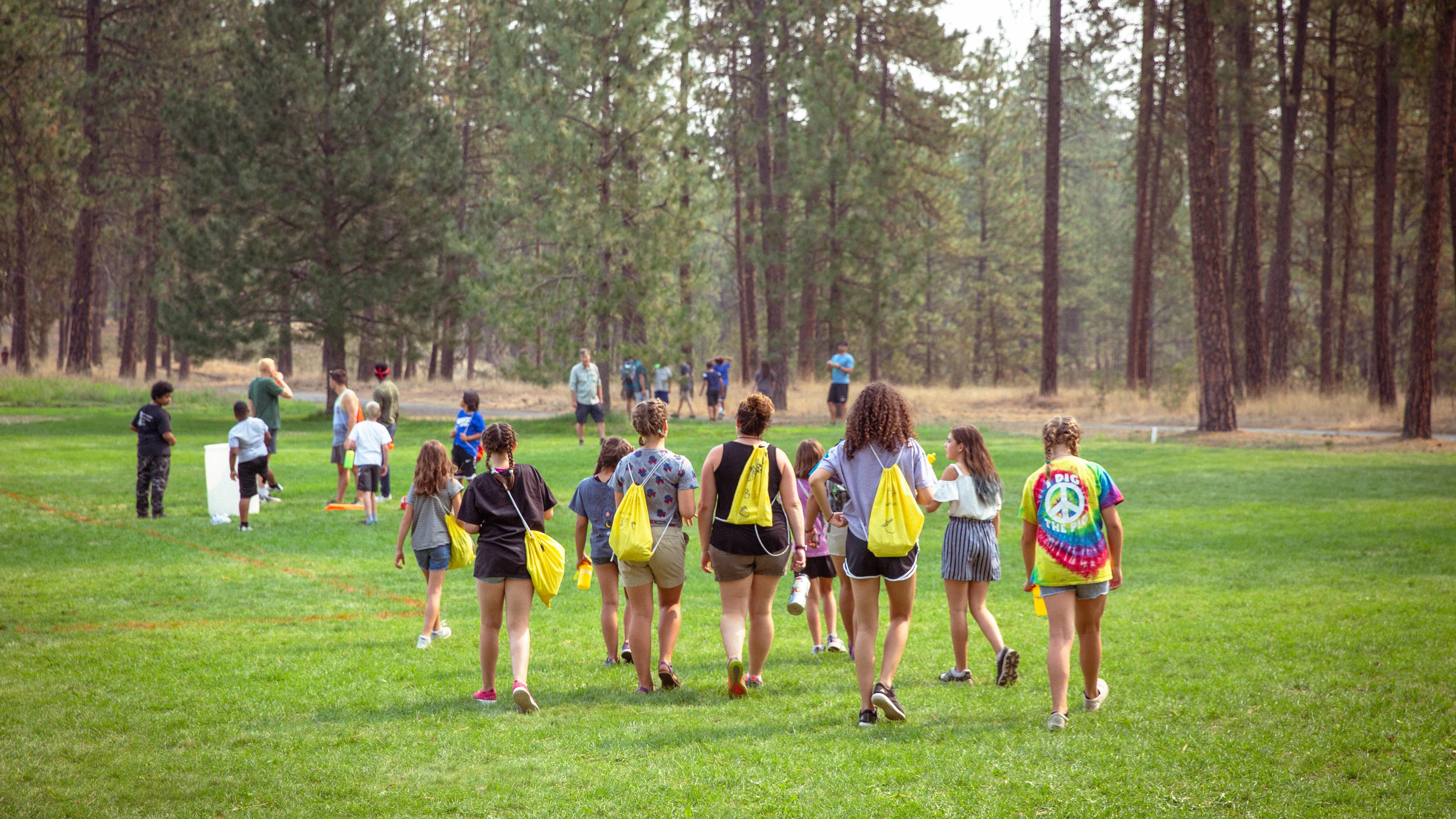
Every summer, UGM partners with local churches to invite at-risk children from Spokane's low-income neighborhoods to enjoy a week at UGM's riverside...